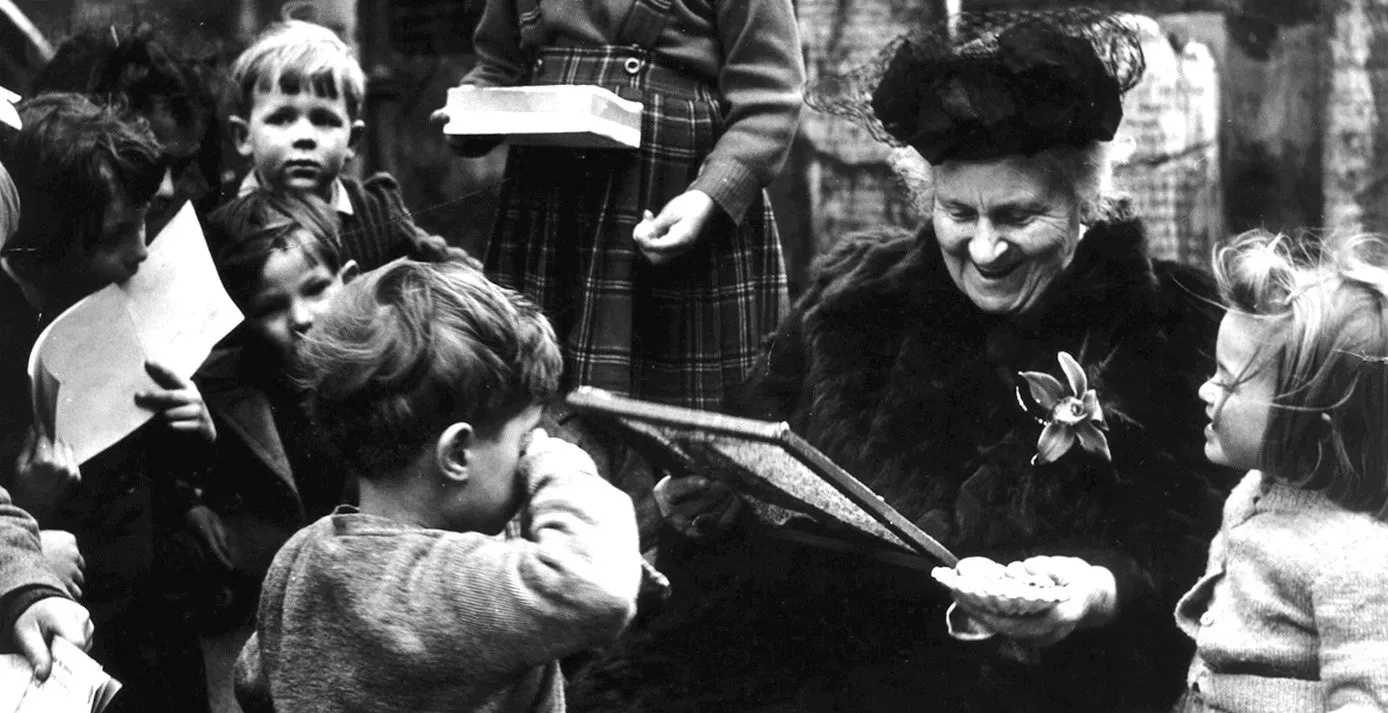Dr. Maria Montessori was the first woman to practice medicine in Italy. A scholar of biology, psychiatry, anthropology, and medicine, she worked with young children and became profoundly interested in their development. Through careful and exhaustive observation, she noted specific characteristics associated with a child’s interests and abilities at each stage of their development and realized that they constructed their own personality as they interacted with their environment. She also observed the manner in which they learned as they spontaneously chose and worked with the autodidactic materials she provided. Each child, in their own time, showed a remarkable ability to absorb knowledge from their surroundings and essentially teach themselves.
First and foremost a scientist, Dr. Montessori was earth-bound and highly spiritual in her pursuit of truth. She studied children of all races and cultures in many countries around the world, soon seeing the universality of human development. Rather than fight these laws of nature, she suggested that we “follow the child,” allowing them to show us how best to foster the growth of their human potential. This simple and profound truth inspired her quest for educational reform through a revolutionary child-centered methodology, philosophy, and teacher training. Ultimately, she declared two principles as the foundation of Montessori pedagogy: the universal characteristics of the human child, and the child as a unique, unrepeatable, respectable, and admirable individual to be unconditionally accepted as one of life’s most marvelous expressions.


